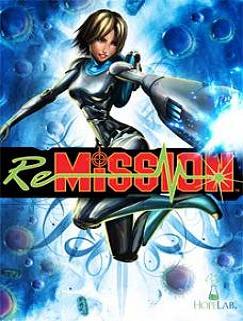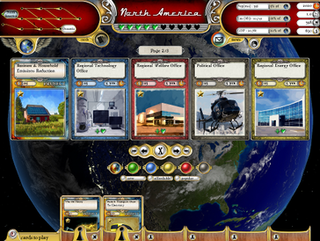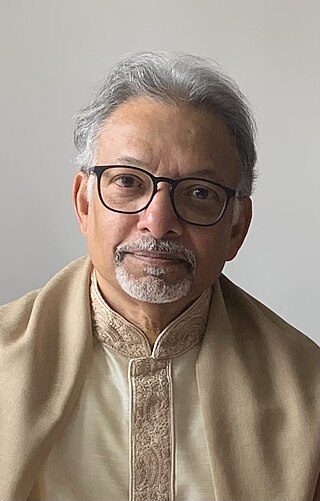
Risk management is the identification, evaluation, and prioritization of risks, followed by the minimization, monitoring, and control of the impact or probability of those risks occurring.

A strategy game or strategic game is a game in which the players' uncoerced, and often autonomous, decision-making skills have a high significance in determining the outcome. Almost all strategy games require internal decision tree-style thinking, and typically very high situational awareness.

William Ralph Wright is an American video game designer and co-founder of the game development company Maxis, which later became part of Electronic Arts. In April 2009, he left EA to run Stupid Fun Club Camp, an entertainment think tank in which Wright and EA are principal shareholders.
Simulation video games are a diverse super-category of video games, generally designed to closely simulate real world activities. A simulation game attempts to copy various activities from real life in the form of a game for various purposes such as training, analysis, prediction, or entertainment. Usually there are no strictly defined goals in the game, and the player is allowed to control a character or environment freely. Well-known examples are war games, business games, and role play simulation. From three basic types of strategic, planning, and learning exercises: games, simulations, and case studies, a number of hybrids may be considered, including simulation games that are used as case studies. Comparisons of the merits of simulation games versus other teaching techniques have been carried out by many researchers and a number of comprehensive reviews have been published.

The National Society for the Prevention of Cruelty to Children (NSPCC) is a British child protection charity founded as the Liverpool Society for the Prevention of Cruelty to Children (LSPCC) by Thomas Agnew on 19 April 1883. The NSPCC lobbies the government on issues relating to child welfare, and creates child abuse public awareness campaigns. Since the 1980s, the charity has had statutory powers allowing it to apply for help on behalf of children at risk. In the 1990s, the charity's publication, Satanic Indicators, fueled panic in social workers who went and accused parents and removed children from homes when they should not have. It operates a help line. The Paddington Bear character has partnered with the charity to raise funds for the charity. NSPCC operates telephone helplines.
The Environment Agency (EA) is a non-departmental public body, established in 1996 and sponsored by the United Kingdom government's Department for Environment, Food and Rural Affairs, with responsibilities relating to the protection and enhancement of the environment in England.
Development communication refers to the use of communication to facilitate social development. Development communication engages stakeholders and policy makers, establishes conducive environments, assesses risks and opportunities and promotes information exchange to create positive social change via sustainable development. Development communication techniques include information dissemination and education, behavior change, social marketing, social mobilization, media advocacy, communication for social change, and community participation.
The European Agency for Safety and Health at Work (EU-OSHA) is a decentralised agency of the European Union with the task of collecting, analysing and disseminating relevant information that can serve the needs of businesses, governments and specialists involved in safety and health at work. Set up in 1994 by Council Regulation (EC) No 2062/94 of 18 July 1994, EU-OSHA is based in Bilbao, Spain, where it has a staff of occupational safety and health (OSH), communication and administrative specialists. William Cockburn Salazar is the current Executive Director of EU-OSHA. Council Regulation (EC) No 2062/94 was replaced by Regulation (EU) 2019/126 on 20 February 2019.
Suicide intervention is a direct effort to prevent a person or persons from attempting to take their own life or lives intentionally.

The Re-Mission games for young cancer patients were conceived by Pam Omidyar and designed based research by the nonprofit HopeLab Foundation, with direct input from young cancer patients and oncology doctors and nurses, and game developer Realtime Associates, among others. The games engage young cancer patients through entertaining game play while impacting specific psychological and behavioral outcomes associated with successful cancer treatment. HopeLab has made Re-Mission games available at no charge to young people with cancer and their families, as well as oncology healthcare workers and institutions around the world.
The prevention paradox describes the seemingly contradictory situation where the majority of cases of a disease come from a population at low or moderate risk of that disease, and only a minority of cases come from the high risk population. This is because the number of people at high risk is small. The prevention paradox was first formally described in 1981 by the epidemiologist Geoffrey Rose.

An educational video game is a video game that provides learning or training value to the player. Edutainment describes an intentional merger of video games and educational software into a single product. In the narrower sense used here, the term describes educational software which is primarily about entertainment, but tends to educate as well and sells itself partly under the educational umbrella. Normally software of this kind is not structured towards school curricula and does not involve educational advisors.

A climate change video game, also known as a global warming game, is a type of serious game.
Risk communication is a complex cross-disciplinary academic field that is part of risk management and related to fields like crisis communication. The goal is to make sure that targeted audiences understand how risks affect them or their communities by appealing to their values.
Construction and management simulation (CMS), sometimes also called management sim or building sim, is a subgenre of simulation game in which players build, expand or manage fictional communities or projects with limited resources. Strategy video games sometimes incorporate CMS aspects into their game economy, as players must manage resources while expanding their project. Pure CMS games differ from strategy games, however, in that "the player's goal is not to defeat an enemy, but to build something within the context of an ongoing process." Games in this category are sometimes also called "management games".
Youth suicide is when a young person, generally categorized as someone below the legal age of majority, deliberately ends their own life. Rates of youth suicide and attempted youth suicide in Western societies and elsewhere are high. Female youth are more likely to attempt suicide than male youth but less likely to die from their attempt. For example, in Australia, suicide is second only to motor vehicle accidents as its leading cause of death for adolescents and young adults aged 15 to 25.
A serious game or applied game is a game designed for a primary purpose other than pure entertainment. The "serious" adjective is generally prepended to refer to video games used by industries like defense, education, scientific exploration, health care, emergency management, city planning, engineering, politics and art. Serious games are a subgenre of serious storytelling, where storytelling is applied "outside the context of entertainment, where the narration progresses as a sequence of patterns impressive in quality ... and is part of a thoughtful progress". The idea shares aspects with simulation generally, including flight simulation and medical simulation, but explicitly emphasizes the added pedagogical value of fun and competition.
Health communication is the study and practice of communicating promotional health information, such as in public health campaigns, health education, and between doctor and patient. The purpose of disseminating health information is to influence personal health choices by improving health literacy. Health communication is a unique niche in healthcare that allows professionals to use communication strategies to inform and influence decisions and actions of the public to improve health.

Hannah Louise Cloke is a British hydrologist who is Professor of Hydrology at the University of Reading. She was awarded the European Geosciences Union Plinius Medal in 2018 and appointed Officer of the Order of the British Empire in the 2019 Birthday Honours.

C. Emdad Haque is a Canadian academic, environmentalist, and author. He is a professor in the Natural Resources Institute of the Clayton H. Riddell Faculty of Environment, Earth, and Resources at the University of Manitoba and Chief Technical Advisor at the Bangabandhu Centre of Bangladesh Studies in Canada.









